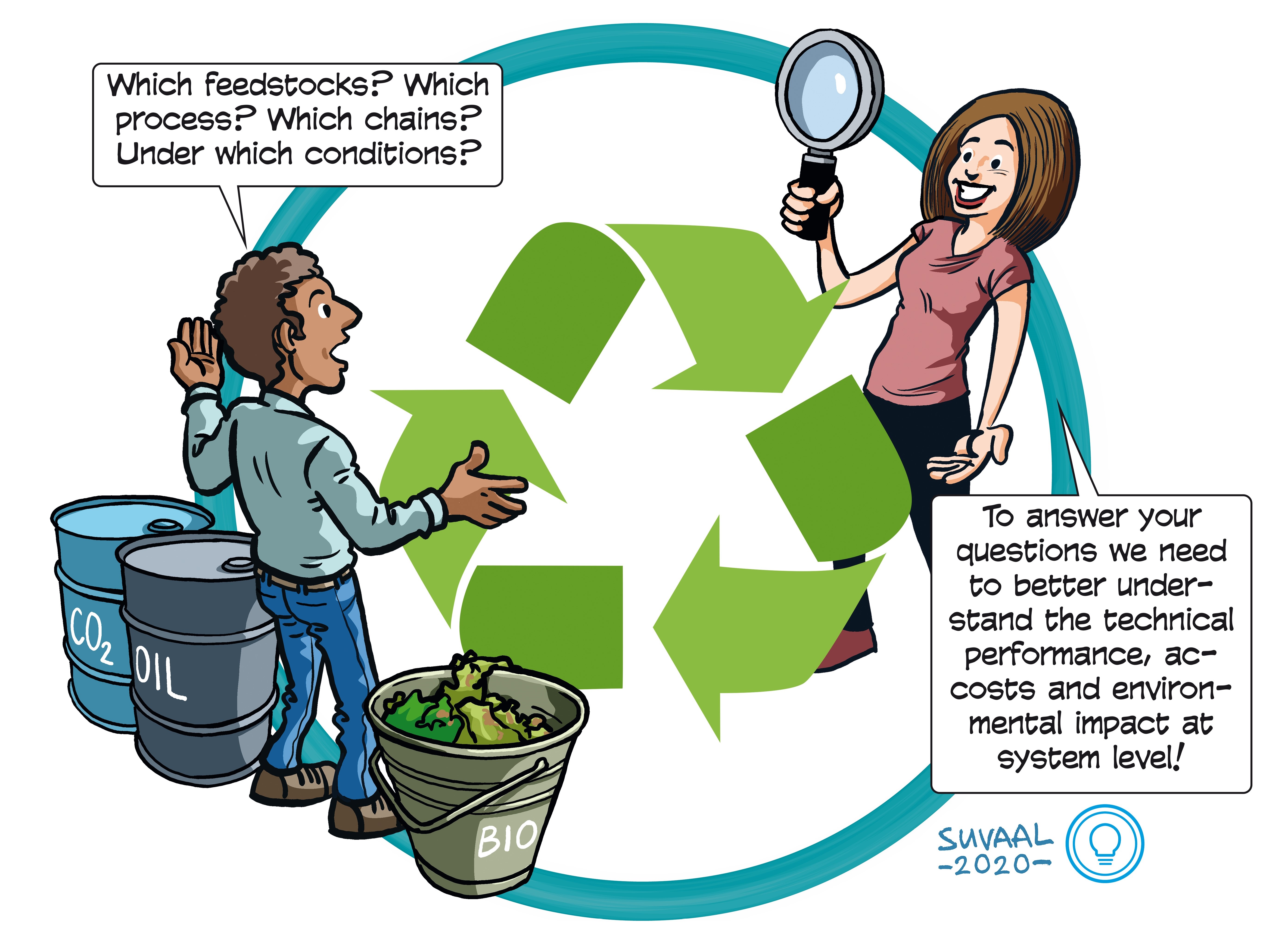Unravelling the impact of using alternative raw materials in industrial clusters
Themes: Chemistry, Bio- & process technology


A TRL is a measure to indicate the matureness of a developing technology. When an innovative idea is discovered it is often not directly suitable for application. Usually such novel idea is subjected to further experimentation, testing and prototyping before it can be implemented. The image below shows how to read TRL’s to categorise the innovative ideas.
Summary of the project
Although a chemical engineer, the researcher works on system analysis of mainly industrial related systems. This means that she doesn’t focus on the technology development itself but rather on what happens when you put a technology to work in real life in an existing system. Often, novel technologies are being developed in a lab at a small scale and when it works this technology is scaled-up from lab to pilot and from pilots to industrial proportion; This means that we move technologies from for instance 500g at the lab to 50 thousand tons at an industrial plant. This change in scale has implications for the implementation of the technology. It raises questions such as where should such a plant be located, or is there need for new infrastructure? Are there enough resources available? How much would it cost? Is it competitive compared to other technologies? By assessing technologies in such large scale scenario’s the researcher can identify potential bottlenecks early on and bring back these insights to the people working in the lab, in this way contributing to shape how technologies develop.
This analysis becomes more complex when you also take into account that – especially in the chemical industry – the processes do not stand alone but are part of complex industrial clusters, where the processes are hugely intertwined by sharing raw materials, utilities (heat, electricity, water) or infrastructure. What is waste energy for one process is a source of energy for another. Because of these interconnections, any change in the quality, amount or type of (by)products will have repercussion beyond individual plants. Understanding these “domino” impacts requires assessing technologies in the larger context.
Currently, the researcher is working on developing a methodology to systematically analyse the impact of replacing fossil fuels with alternative raw materials in petrochemical industrial clusters. For this analysis she is developing a novel approach adapting concepts from invasion ecology for application in industrial clusters to assess the impact on resources, energy and costs at the plant and the cluster level. The work integrates knowledge generated in different disciplines, from chemical engineering where work is carried out to develop process models of technologies and assess their techno-economic performance, and from industrial ecology where research is conducted to understand the development of industrial systems.
What's next?
The current research looks at what is technically feasible when replacing fossil fuels as raw material in petrochemical clusters and assesses the costs and environmental impacts. The next step will be to look into the kind of institutions, policies and regulations that need to be in place to make a full transition to a fossil free chemical industry happen.
Prof. Dr. Andrea Ramirez Ramirez
e-refinery
Faculties involved
Faculty of Technology, Policy and Management
Additional information
- Andrea Ramirez Ramirez - personal page
- Vici grant for Andrea Ramirez Ramirez
